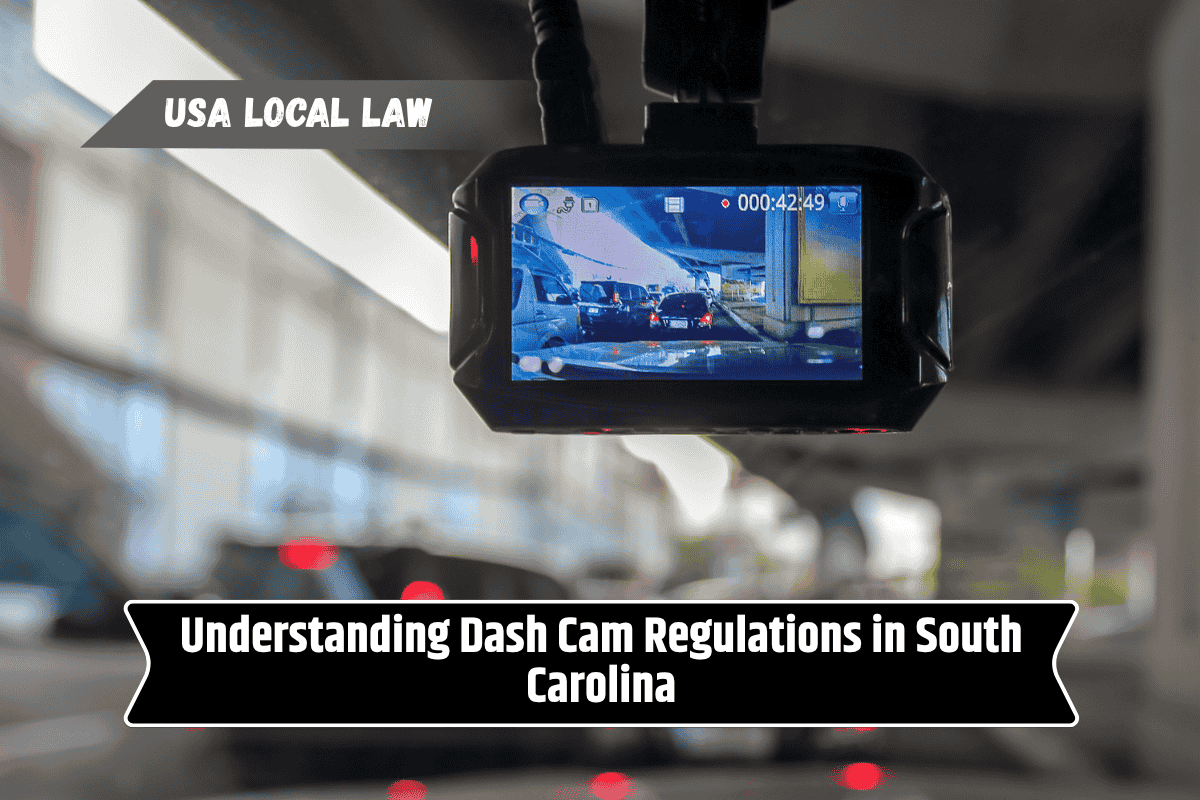Dash cams, or dashboard cameras, have become increasingly popular among drivers. They can provide valuable evidence in case of accidents, disputes, or even traffic violations.
However, before installing a dash cam in your vehicle, it’s important to understand the regulations governing their use in South Carolina. While dash cams can be a useful tool for protecting yourself and your vehicle, there are specific laws that govern their installation and use. This article will guide you through what you need to know about dash cam regulations in South Carolina.
Are Dash Cams Legal in South Carolina?
Yes, dash cams are legal to use in South Carolina. There is no state law that specifically bans the use of dashboard cameras, so you are allowed to install and operate one in your vehicle.
Many drivers use dash cams as a way to record their trips, especially to capture any incidents on the road. Whether for personal protection or as part of a commercial fleet, dash cams are widely used and accepted.
However, while dash cams themselves are legal, there are certain rules and considerations to keep in mind.
Mounting a Dash Cam: Where Can It Be Placed?
South Carolina law requires that a vehicle’s windshield remain free from obstructions that could impair the driver’s view. According to the South Carolina Code of Laws, any device that obstructs the driver’s view may be considered illegal.
This means that when installing a dash cam, it must be positioned in a way that does not interfere with the driver’s ability to see the road clearly.
To comply with these regulations:
Windshield Placement: The dash cam must be mounted in a spot that does not block the driver’s line of sight. Typically, this means placing the camera near the rearview mirror, as this area does not obstruct visibility.
Avoiding Blockage: Ensure the dash cam does not obstruct critical areas such as the windshield wipers, defrost vents, or the field of view for side and rear mirrors. If the camera impedes your ability to see out of the windshield, it could lead to a citation.
Recording Audio: South Carolina’s Consent Laws
While dash cams are primarily used for video recording, many models also have the ability to record audio. South Carolina is a one-party consent state, meaning that you are allowed to record conversations as long as one party (you, the person operating the dash cam) consents to the recording. This is important to note if your dash cam records audio inside your car, especially during interactions with others.
However, while one-party consent applies to private conversations, it’s still important to consider the privacy of individuals. For example, you should avoid situations where your dash cam may be recording private conversations without consent when the vehicle is parked in public spaces.
Dash Cams and Privacy Concerns
While dash cams are useful for capturing evidence in case of accidents, they also raise privacy concerns. It’s important to be mindful of what you record and where:
Public Spaces: In public spaces, there is typically no expectation of privacy, so recording video of public streets or incidents on the road is generally acceptable.
Private Property: However, recording inside private properties (such as parking lots or private businesses) could violate privacy expectations if the camera is pointed toward private areas where people have an expectation of privacy. It’s a good idea to be cautious about what your dash cam records, especially when the vehicle is parked.
Dash Cam Footage and Legal Considerations
In South Carolina, dash cam footage can be useful in various legal situations, such as:
Accident Evidence: Dash cams can provide crucial evidence if you are involved in an accident, as they can help show what happened leading up to the crash.
Traffic Violations: Dash cam footage can also be helpful if you believe you were wrongly ticketed for a traffic violation, providing evidence that could help contest the ticket.
Insurance Claims: Many insurance companies accept dash cam footage as evidence in claims, which could expedite the claims process and potentially reduce disputes.
However, while dash cam footage can be used as evidence, it’s important to understand that it’s not always automatically admissible in court. The footage may need to be authenticated and properly presented. If you plan to use dash cam footage in a legal setting, it’s advisable to consult with an attorney.
Using Dash Cams for Commercial Vehicles in South Carolina
If you’re using a dash cam in a commercial vehicle (such as a delivery truck, taxi, or rideshare vehicle), additional regulations may apply. South Carolina follows federal guidelines for commercial vehicles, which include specific rules about the use of recording devices.
In the case of rideshare services like Uber or Lyft, dash cams are commonly used by drivers to provide security for both themselves and their passengers. As with personal vehicles, it’s important to ensure that the dash cam is positioned correctly and does not interfere with the driver’s line of sight.
